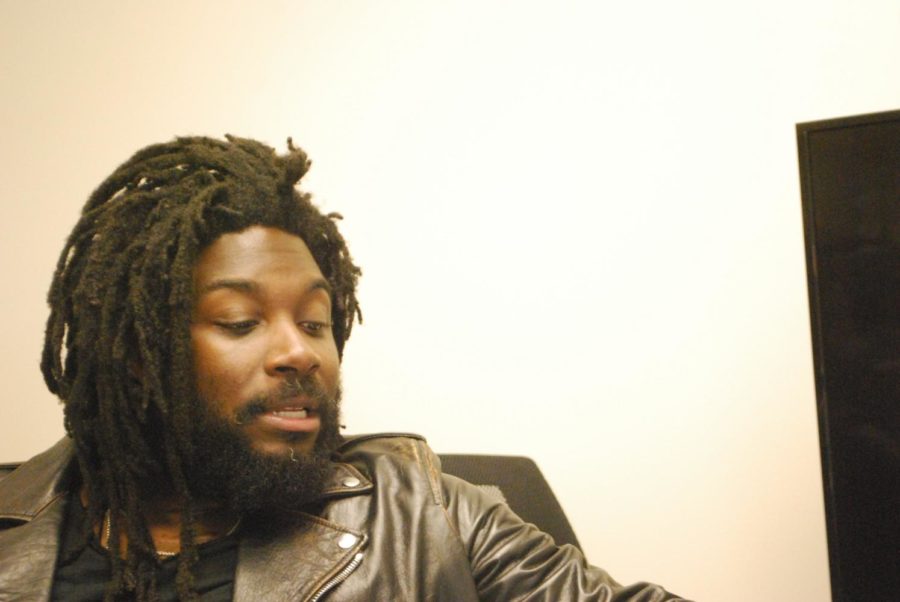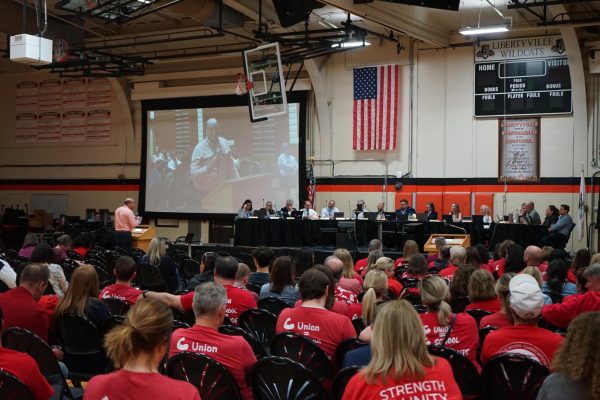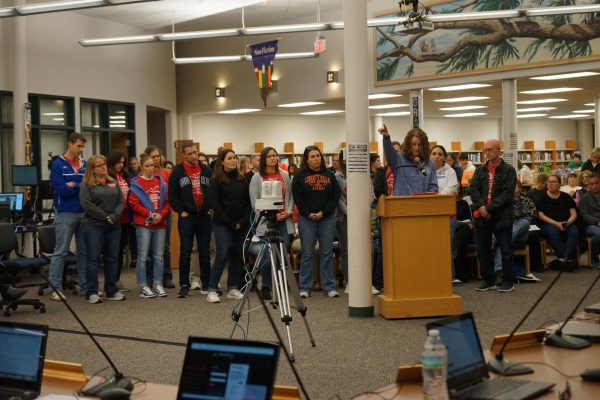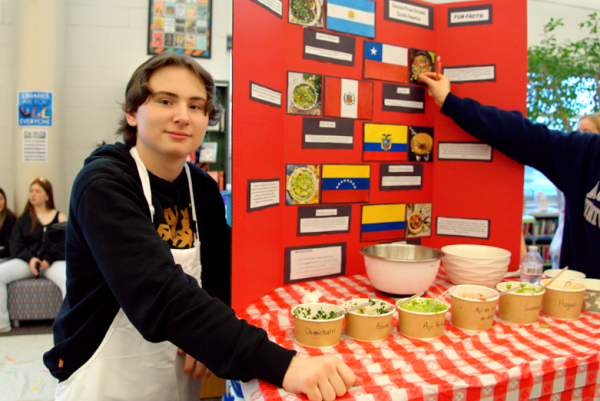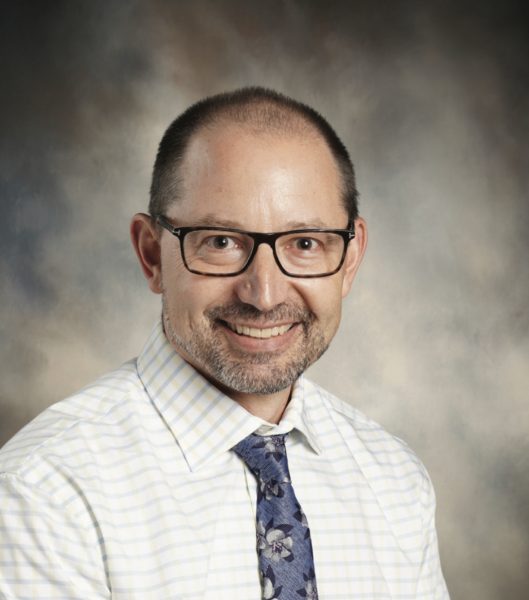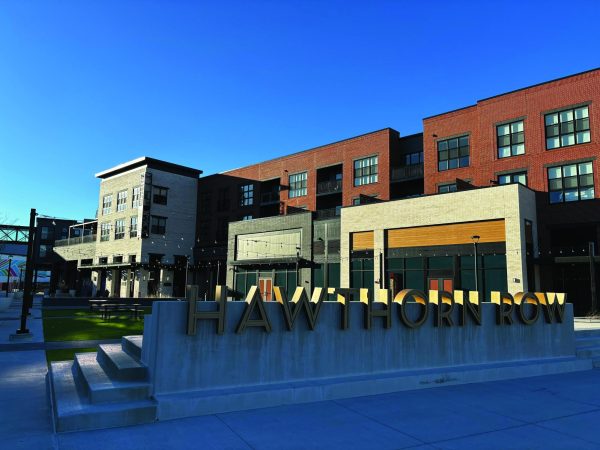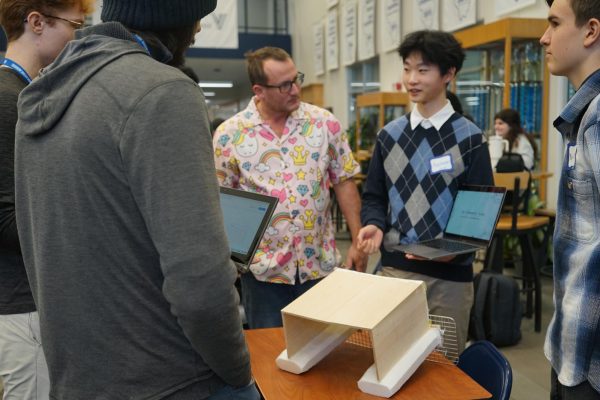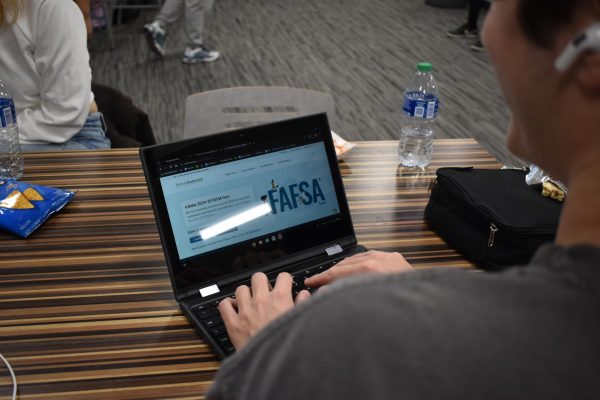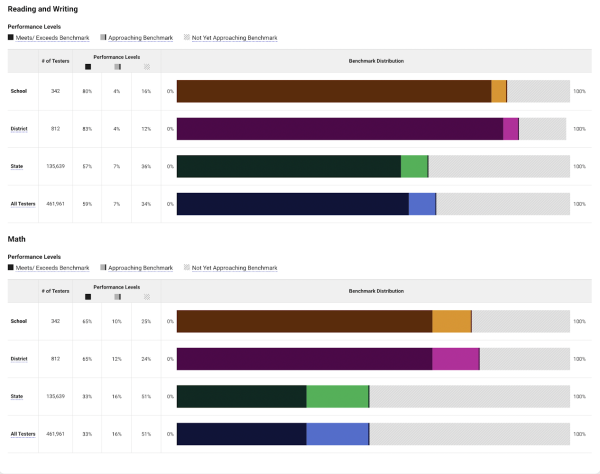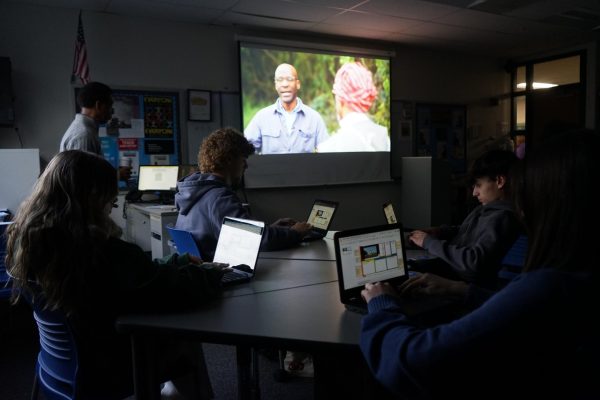Best-selling author Jason Reynolds visits VHHS
Reynolds shares his take on the political discourse in America.
The year was 1998. Four teenagers were driving through Washington D.C., hanging out on a Tuesday night. Nothing was out of the ordinary, until they saw red and blue flashing lights from the car behind them. At first, they thought that the cop was going somewhere else. After three more blocks, it was apparent that the officer was following them.
This was the story that author Jason Reynolds told Vernon Hills students in the Studio Theater on Monday, Oct. 2. Students learned how he, along with everyone in his neighborhood, was given “the police talk” when he was a kid. Parents told children as young as ten what to do if a police officer pulled them over.
“I have never gotten that talk… I can only imagine how frightening it would be to go out and be worried about that happening to you,” Ryan Pristas (11) said.
However, the police talk was just a part of life to Reynolds and his friends, and they remembered it when they got pulled over that Tuesday night. At first it seemed to be a standard traffic stop.
Then, five other police cars showed up. Reynolds was then subjected to a barrage of questions. The cops ordered the teenagers out of the car, told them to get on their stomachs, and handcuffed them face down on the road.
The police officers proceeded to search everywhere in the car, looking for anything out of the ordinary, and dumping the contents of the car out onto the road. After several minutes of searching, the cops ended their search, took the handcuffs off the teenagers, and left as quick as they came.
Reynolds said that, at the time, this event did not feel out of the ordinary, as police stops were a common occurrence where he grew up. It wasn’t until he got older that he realized the abuse of power that he had been subjected to that night. Seventeen years later, Reynolds published a book that speaks out against abuse of power by police.
“All American Boys” was one of the books that many VH students read over the summer. It is the story of two boys, one who is beaten by a police officer, and another who watches the event happen, and what they do in the aftermath of the event. Ms. Tolva, VHHS Librarian, chose “All American Boys” as an option for summer reading.
“This was a book that I loved… that was nominated for a statewide reading award,” Tolva said.
The purpose of Ms. Tolva bringing Reynolds in to speak to the school was simple at first: she wanted students to meet the author. However, Ms. Tolva explained that her purpose evolved from her initial reasoning.
“As time went on… there was a wider goal for the visit. That was to have students hear from a diverse background and from somebody else’s point of view,” Tolva explained.
Because the book is about police brutality in an inner-city neighborhood, it was a little harder for some Vernon Hills students to connect to the book. However, as Ms. Tolva said, the goal was to have Reynolds speak so students could hear from a point of view that wouldn’t normally be heard in Lake County.
Reynolds clearly drew inspiration from his 1998 police stop, but when asked what finally sparked him to write this story, he had a quick answer.
“The death of Michael Brown,” Reynolds said.
He added that he and his co-author, Brendan Kiely, didn’t want to exploit the deaths of young people in America; they wanted to create a platform on which young people could have these conversations.
“I just wish we could be more honest in America,” Reynolds said in an interview after the presentation. “It doesn’t mean we’re not a good nation, it means we’re not perfect.”
When authors come to speak, students connect to the author’s purpose. Bella Pineda (10) found a lot of value in having Reynolds speak at the school.
“It was really valuable to get to see that the story comes from real experiences,” Pineda said. “When you’re reading the book, you know that it already happens to people, but by having Jason Reynolds there and explaining how this happened in his community, it becomes so much more real.”

